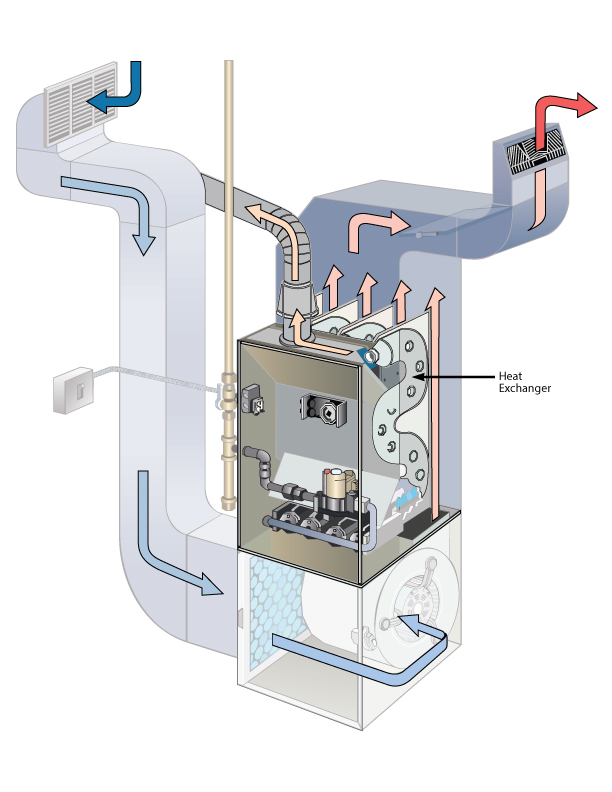Here’s the bottom line: Electric heating systems are typically cheaper to install but cost more to operate on a month-to-month basis, whereas gas heating systems cost more to install but cost less month-to-month. Why?
Gas is typically a cheaper form of fuel.
According to this calculator by energydepot.com, an NJ homeowner could expect to see annual savings of about $1,450 when using natural gas over electricity in an average-sized home.
However, the cost difference between gas and electric heating (for your home) will totally depend on factors related to your home, including:
- The fuel type you currently have (gas or electric)
- The heating system you currently have (furnace, boiler, heat pump)
Below, we’ll break down cost factors in more detail, so you can determine which type of heat may be most cost-effective for your New Jersey home.
Want a cost estimate from a professional? We’d be happy to provide you with one. Learn more about the heating services we offer or…
Schedule Service
If you currently have an electric heating system…
…your cheapest option is probably going to be to install a new heating system that runs on electricity. Why?
- Gas furnaces require you to have access to natural gas.
If you don’t have access to gas, you will probably need to:
- Pay a local gas company to run a gas line to your home (starting at $500). Some NJ utility companies will offer to run this line for free if you’re a customer.
- Hire a plumber to pipe a gas line (starting at $1,500)
- Pay for extended gas lines to any appliances that are farther away (starting at $500 per appliance)
- Gas furnaces require special venting.
Unlike electric furnaces or heat pumps, gas furnaces actually produce gas, which means your system needs to vent to the exterior (in order to remove these gases from your home). If you have an electric furnace or a heat pump, an HVAC technician will have to install venting for a gas system, which will increase the cost of your installation.
If you currently have a gas heating system…
…your cheapest option is going to be to install another gas heating system.
This is because gas is a cheaper form of fuel than electricity. So if you already have a gas system set up, it will be cheaper to run a gas heating system on a month-to-month basis as opposed to switching to an electric system.
In addition to gas being a cheaper fuel type, gas furnaces are more powerful than electric ones, meaning they can heat your home quicker. During the NJ winter, this may save you from paying for additional forms of heating, like space heaters.
However, there is one alternative for homeowners who currently have a gas heating system: a dual fuel system.
Dual fuel systems
If you currently use a gas furnace, the most cost-effective option would be to install a dual fuel system, which is a combination of a heat pump and a gas furnace.
Dual fuel systems utilize a heat pump when temperatures are milder and then tap into a gas furnace when temperatures are lower, maximizing efficiency and saving you money.
During the winter, a dual fuel system can reduce your heating bills by as much as 30%.
Want more information on the cost difference between electric and gas? Contact NJ’s Pros
We know that there are many factors that go into determining the cost difference between electric and gas heating for your home. Our team of experts has years of experience helping NJ homeowners find the best heating solutions for their homes, and we’d be happy to help you too.

